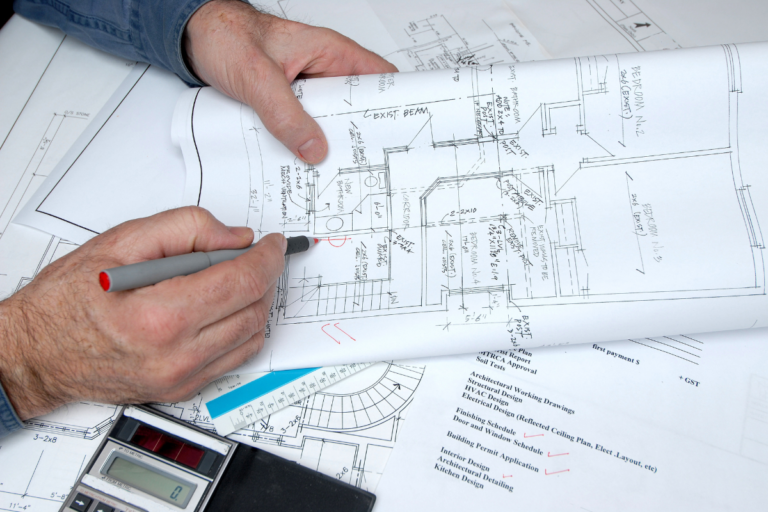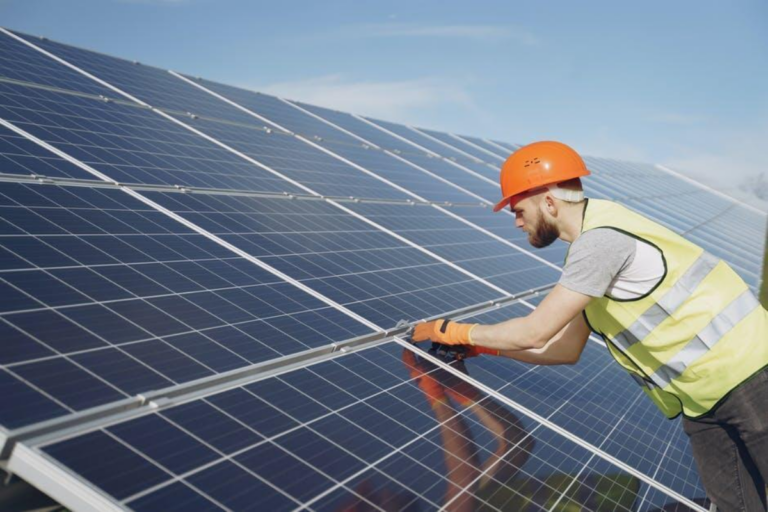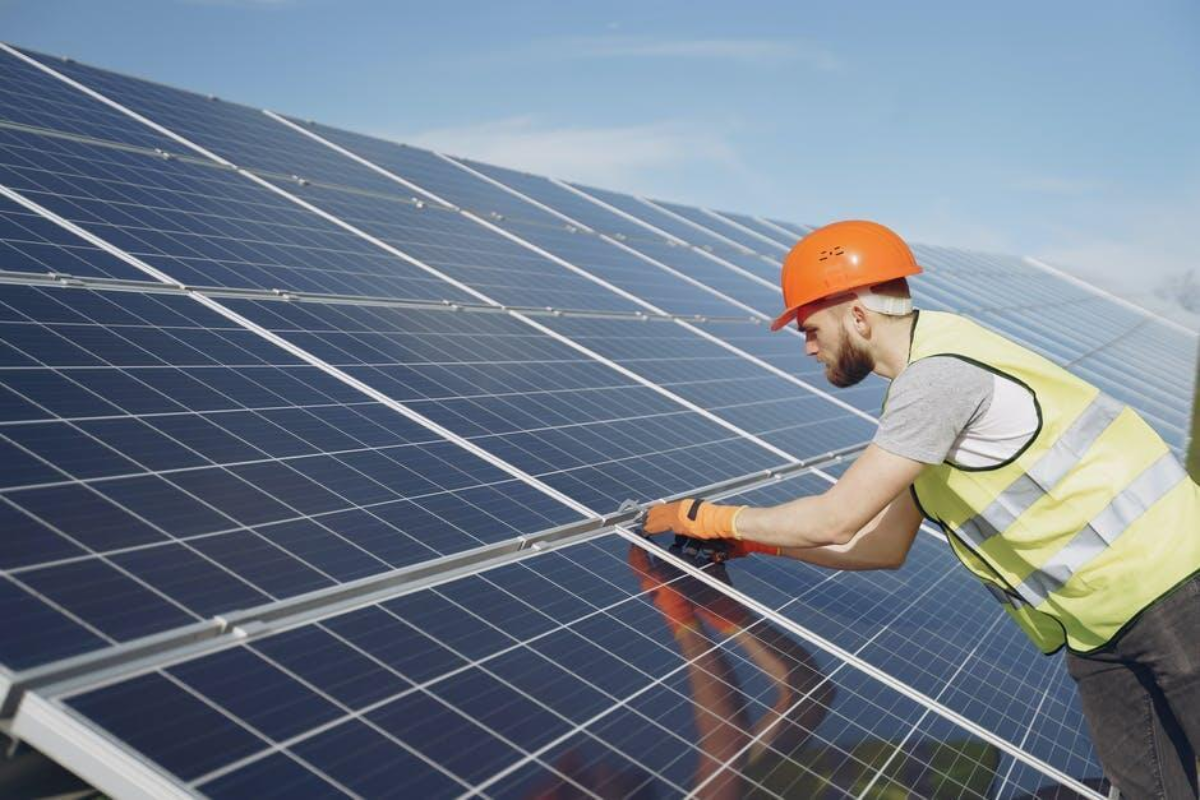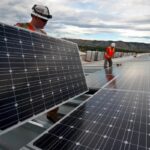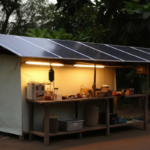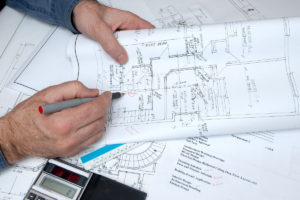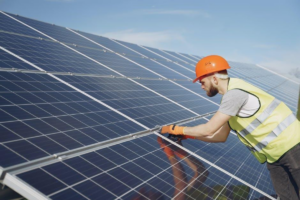Many people are eager to use renewable energy. This has led to big advances in solar technology. One innovation stands out in this changing industry.
It is known for its unmatched efficiency and effectiveness: the hybrid solar inverter. This is a deep-dive exploration.
We will dissect the cutting-edge tech behind these inverters. We will show how they are revolutionizing how we use solar energy.
Post Contents
- 1 Understanding Hybrid Solar Inverters
- 2 How Hybrid Solar Inverters Work
- 3 The Advantages of Hybrid Solar Inverters
- 4 Case Studies in Hybrid Inverter Adoption
- 5 Economic Benefits Of Hybrid Solar Inverters
- 6 Environmental Impact
- 7 Future Trends in Hybrid Solar Inverter Technology
- 8 Optimal Solar Panel Orientation
- 9 Understanding The Technology Behind Hybrid Solar Inverters
Understanding Hybrid Solar Inverters
Solar inverters are the unsung heroes of a solar power system. They convert the DC electricity from solar panels into the AC used in homes and the power grid. But what makes the solar hybrid inverter so distinct is its versatility.
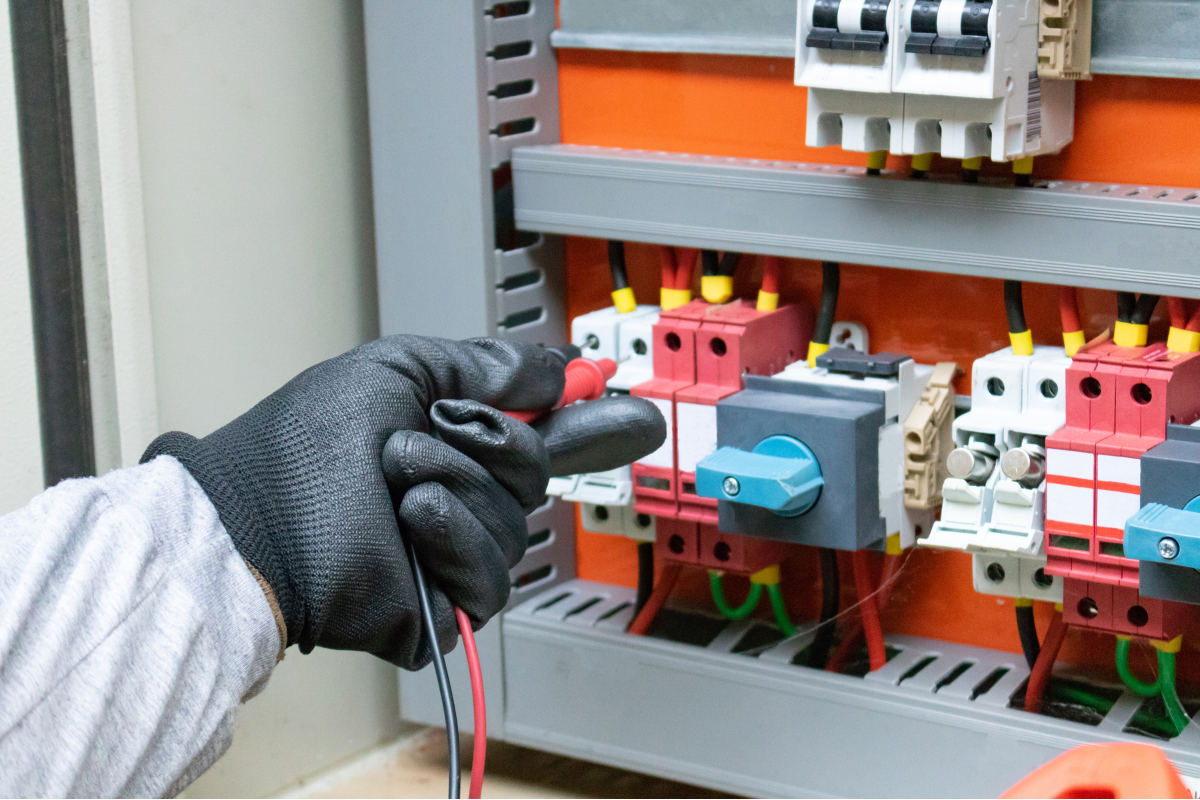
Hybrid models are different from traditional inverters. They work with battery storage systems. They can also draw power from the utility when solar energy is low.
They are better at saving energy and offer high energy independence. This is true even when the sun isn’t shining.
How Hybrid Solar Inverters Work
A hybrid solar inverter is a two-way device. It turns DC to AC for immediate use. It also controls the charging and discharging of the attached battery.
When the battery is charged or during peak usage times, the system can draw from the battery or the grid.
The actions are smart because of the inverter’s clever software. It tracks the home’s energy use, the solar output, and the grid’s electricity prices (if any).
The Advantages of Hybrid Solar Inverters
The benefits of hybrid solar inverters are multifaceted:
Energy Independence
Hybrid inverters have battery storage. They can reduce or end the need for grid power.
This is especially helpful in areas with unreliable grid power. They often have high energy costs and power outages.
Self-Consumption Optimization
Hybrid inverters store extra solar energy for you. They can raise self-power consumption rates. This cuts utility bills and maximizes the ROI of solar installations.
Off-Grid Capabilities
For those seeking complete energy autonomy, hybrid inverters can help. They ease the transition to off-grid living by managing a steady and reliable solar energy supply.
Demand Management
They can also help manage high energy-use periods, like evenings. They draw power from the grid when rates are low. Then, they use battery reserves or solar energy when rates are high.
Case Studies in Hybrid Inverter Adoption
The real-world impact of hybrid solar inverters can be seen in a variety of settings:
Residential Use
Homeowners are experiencing greater control over their energy consumption. In places like California, grid stability is a concern. Hybrid inverters give homeowners peace of mind. They can weather any power-related storms.
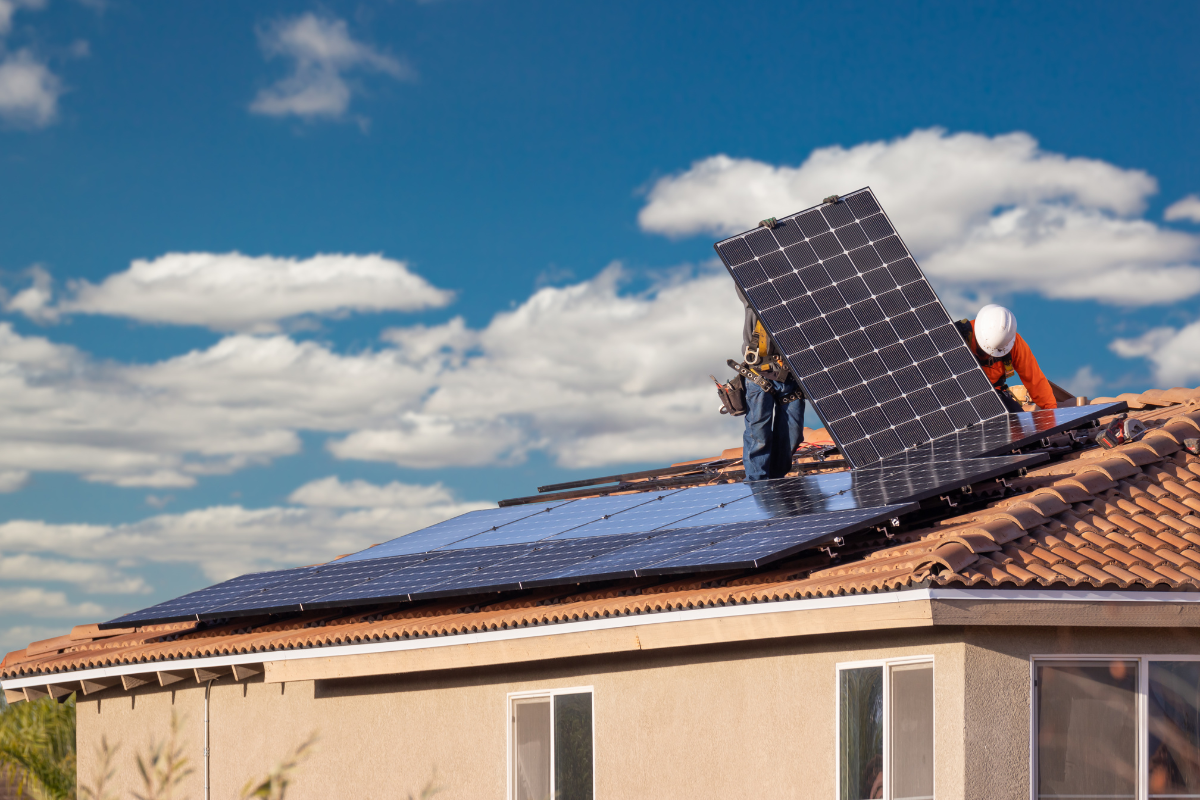
Small To Medium-Sized Businesses
Hybrid inverters are finding a home in businesses. The businesses are eager to cut costs and help the planet.
The technology makes energy management simpler. It also serves as a potent marketing tool for eco-conscious customers.
Rural and Remote Communities
Hybrid solar systems provide a lifeline for communities far from reliable power grids. They can be set to match power needs. This ensures steady access to electricity without costly grid extensions.
Installation and Maintenance Considerations
The installation process can vary, depending on factors like:
- system size
- state of the existing electrical infrastructure
Yet, some universal steps must be followed. When choosing a hybrid inverter, working with a certified installer is crucial. They can recommend the best model for your needs and ensure proper installation.
You must maintain hybrid inverters and their parts, like batteries. This is key for their long life and good performance. You should do regular checks.
These checks include looking for wear, testing the battery, and updating the software.
Economic Benefits Of Hybrid Solar Inverters
Beyond their technological edge, hybrid solar inverters present significant economic benefits. The initial investment in hybrid systems might be higher than in traditional ones. But, the long-term savings are considerable.
These inverters enable homeowners and businesses to store excess solar energy. Using stored energy during peak pricing can lead to more savings. This is true in areas with time-of-use tariffs.
Also, a hybrid solar system can raise property values. It is a tangible asset that appeals to eco-conscious buyers. For businesses, cutting costs can boost profits. It also improves their green image.
Users can get government incentives and rebates for using renewable energy. This will increase the return on investment for hybrid solar inverters.
Environmental Impact
Hybrid solar inverters have a positive environmental impact. They reduce carbon emissions. They optimize the use of solar energy.
They reduce reliance on fossil fuels. This is crucial in fighting climate change. Also, storing and using solar power well maximizes solar’s environmental benefits.
It ensures that less energy is wasted and more is used by the consumer. This eases the burden on the power grid. It also helps to make energy more sustainable and resilient.
Using this on a larger scale can speed our transition to greener energy. This highlights the importance of this technology in our shared environmental efforts.
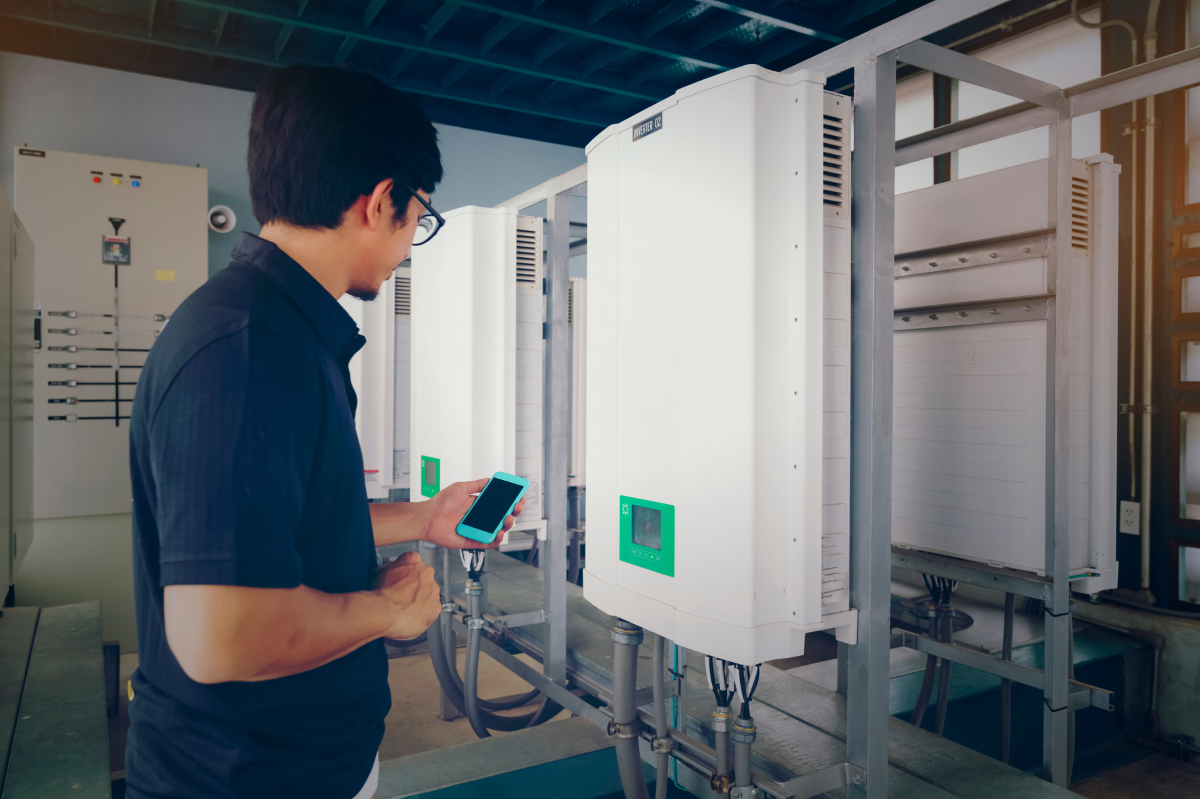
Future Trends in Hybrid Solar Inverter Technology
The path of hybrid solar inverter technology points toward a more integrated, smart, and efficient future.
AI and ML innovations are expected to enhance these systems and improve their self-regulation.
They will be able to predict energy use patterns and adjust their operations. Also, battery technology is advancing.
For example, solid-state batteries are being developed. They promise to increase storage and cut size and cost.
Optimal Solar Panel Orientation
The optimal solar panel orientation is a critical factor in maximizing the efficiency of a hybrid solar inverter system.
Ideally, solar panels should be positioned to capture the maximum amount of sunlight throughout the day.
In the northern hemisphere, solar panels should generally face south. This orientation ensures that panels receive sunlight directly for most investments in renewable energy technology.
Understanding The Technology Behind Hybrid Solar Inverters
What lies ahead for a hybrid solar inverter is a brighter (quite literally) and greener future. The evolution of battery technology will make hybrid systems even more efficient and affordable.
Additionally, as smart home systems become more advanced, they integrate seamlessly with hybrid inverters, further automating energy management based on user behavior and preferences.
With an increasing number of homes and businesses looking for solar power, hybrid inverters are set to play a central role in the energy landscape.
By marrying innovation with sustainability, these devices offer us a tantalizing glimpse into a world where harnessing solar power is not only expected but optimal.
For more helpful tips, check out the rest of our site today!




